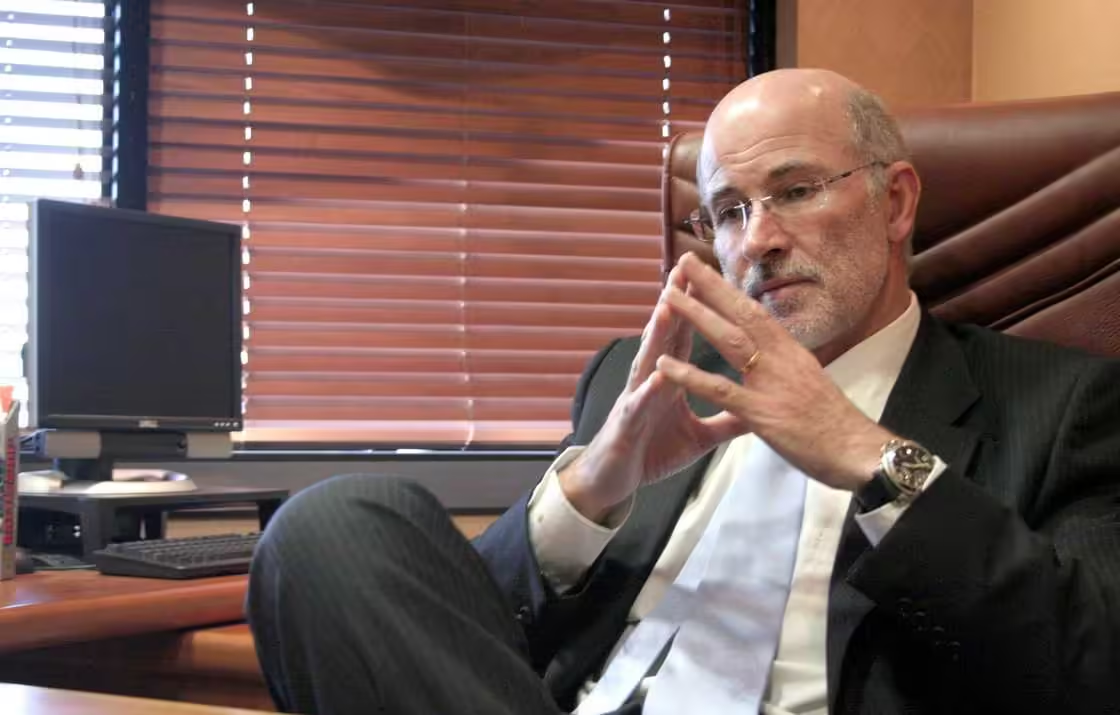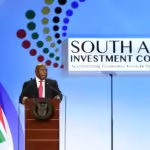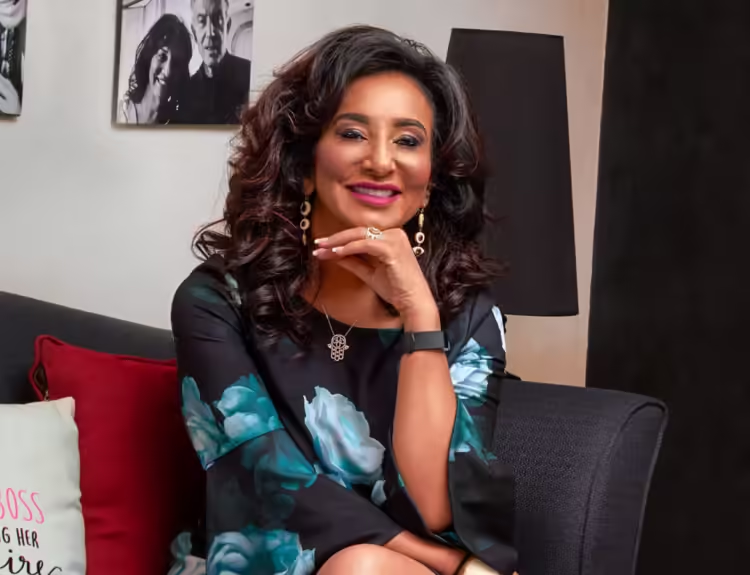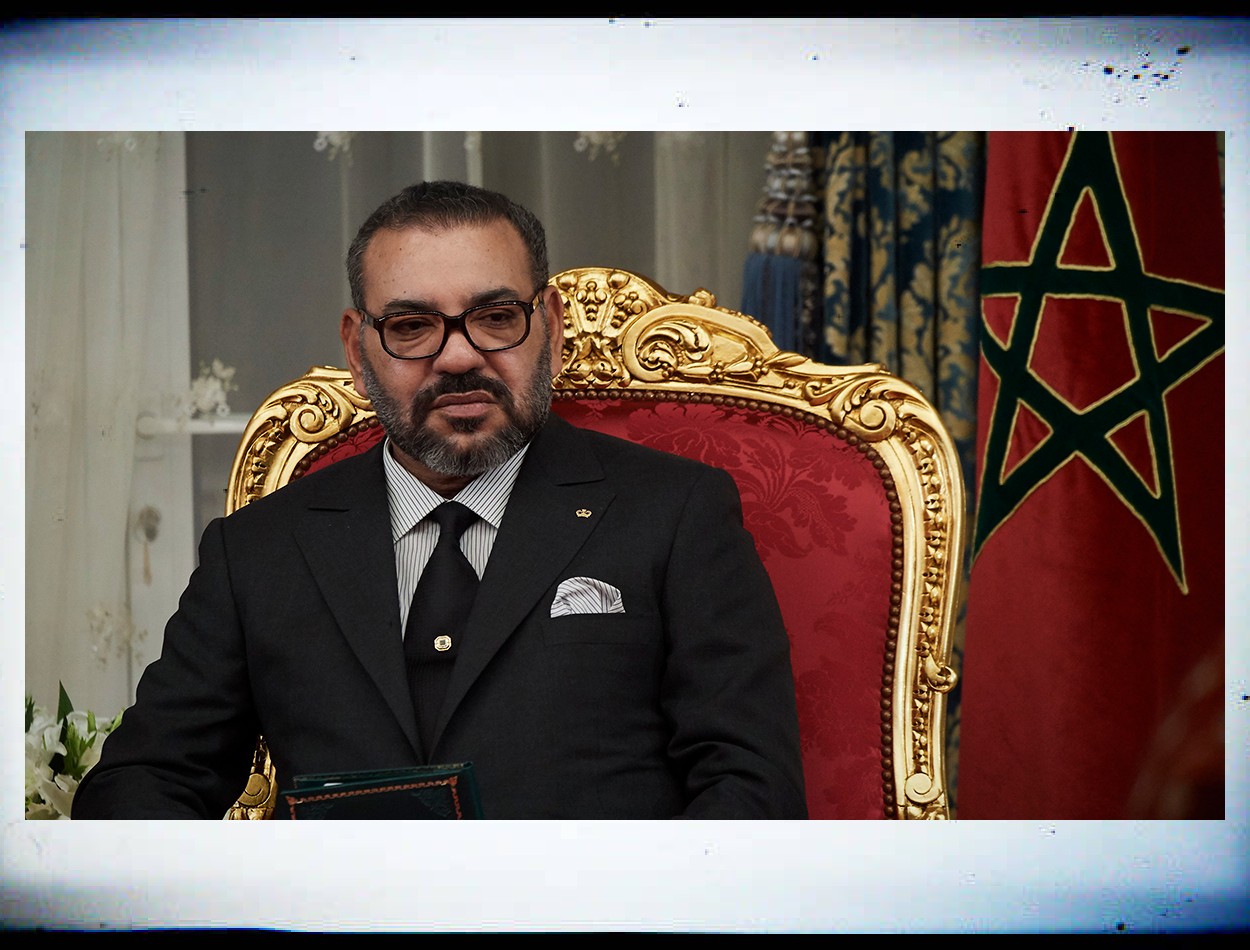In the sun-dappled hills of South Africa’s wine country, Gerrit Ferreira spends of the time in his vineyard. The breeze carries notes of crushed olive and dust from the nearby cellar at Tokara, his luxury winery nestled between jagged peaks and winding roads. It’s a world away from Johannesburg’s corporate towers, but Ferreira isn’t just a vintner.
He is one of the most influential—and least public—architects of South Africa’s modern financial system.
Now 77, Ferreira prefers wine to wealth headlines, and walking the vines to walking the stage. Behind FirstRand Ltd., Africa’s largest financial services group by market capitalization, lies a quiet revolution he helped ignite in the 1970s, alongside long-time collaborators Paul Harris and Lauritz Dippenaar. Together, they reshaped banking in post-apartheid South Africa by building something nimble, entrepreneurial, and unusually human.
The merchant banker
Gerrit Ferreira was born on April 6, 1948, in a farming community in South Africa’s Western Cape, into a family where thrift and enterprise were equal virtues. His upbringing in Stellenbosch—a town steeped in Afrikaner conservatism and agricultural tradition—shaped a temperament defined by caution, conviction, and long-term thinking.
After attending Paul Roos Gymnasium, Ferreira enrolled at the University of Stellenbosch, completing a Master of Business Administration in the 1970s. He began his career in academia, briefly lecturing in business studies before moving into industrial development and investment.
At the time, South Africa’s banking sector was tightly held by legacy British-descended institutions. Ferreira joined the Industrial Development Corporation (IDC), the state-backed financier for economic growth, where he honed his skills in corporate strategy and capital deployment.
In 1977, he co-founded Rand Consolidated Investing (RCI) with Harris and Dippenaar. They launched with R10,000 in capital and a small Johannesburg office, with a radical premise: to build a merchant bank that truly understood its clients.
Betting on brains
RCI pursued strategic financing deals and advisory work rather than competing directly with major banks. In 1985, it merged with Momentum Life to form Rand Merchant Bank (RMB), with Ferreira as executive chairman. RMB earned a reputation for smart deal-making, flat hierarchy, and a meritocratic culture.
The trio at its helm became known for loyalty, informality, and a disdain for the rigid hierarchies that dominated South African boardrooms. Ferreira emerged as the conservative thinker among them—a steadying hand in a high-stakes environment.
The bank prioritized talent. Many future industry leaders—including the heads of Discovery, FirstRand, and OUTsurance—came through its ranks. Ferreira’s emphasis on intellectual clarity over charisma helped shape a lasting institutional culture.
The RMB way
As apartheid waned in the early 1990s, Ferreira and his partners sensed that South Africa’s economy would require more agile capital providers. That conviction led to the formation of FirstRand Ltd. in 1998, through a merger between RMB Holdings, First National Bank, and Momentum.
Gerrit Ferreira took on the role of non-executive chairman and helped design a decentralized operating model. FirstRand’s divisions operated independently and competed for capital internally, which kept bureaucracy low and innovation high.
The results were striking. FirstRand outperformed peers on profitability and efficiency, becoming the most valuable banking group in South Africa by the mid-2000s and expanding across sub-Saharan Africa and into India.
Even as FirstRand flourished, Ferreira continued to build out RMB Holdings (RMBH), the investment vehicle he and his partners had formed years earlier. RMBH evolved into a cornerstone player in South Africa’s corporate landscape, with holdings spanning insurance, banking, and industrial investments.
He became known for his long-term discipline. In a corporate environment often driven by quarterly targets, Ferreira steered RMBH to focus on compounding value patiently over decades. His interventions were rare but decisive, always designed to protect long-term shareholder value.
Spinning off a new insurance empire
In 2011, Ferreira helped spin off insurance assets into a new listed company, Rand Merchant Investment Holdings (RMIH), housing Discovery, Momentum Metropolitan, and OUTsurance. Each was a profitable business born from RMB’s entrepreneurial culture.
The unbundling allowed for focused growth strategies and clarified the group’s structure. OUTsurance emerged as a model of efficient, direct-to-consumer insurance, while Discovery pushed into global markets with behavioral health insurance products.
Gerrit Ferreira guided these companies with light-touch mentorship, focusing on governance and capital discipline rather than micromanagement.
In 2021, Ferreira supported a further simplification: unbundling RMIH’s stakes in Discovery and Momentum Metropolitan. The move eliminated a holding company discount and returned value directly to shareholders.
It reflected Ferreira’s instinct for structural clarity. He consistently favored clean corporate architecture over convoluted ownership webs. The market responded with enthusiasm, recognizing the release of hidden value.
Despite his wealth—which climbed into the hundreds of millions of dollars—Ferreira remained reserved. He declined media profiles, avoided celebrity, and never cultivated a public philanthropic identity. His legacy was embedded in the companies he built, not in foundations or political commentary.
Colleagues often describe him as a stabilizing force. In volatile boardrooms, he provided perspective and discipline. He asked hard questions quietly, and built systems designed to endure beyond individual charisma.
Tokara
In 1994, Gerrit Ferreira acquired land in the Helshoogte Pass outside Stellenbosch and began developing Tokara, a premium winery. As with his financial ventures, he approached viticulture with patience and precision, consulting experts and investing in infrastructure.
Tokara became known for its award-winning red blends and olive oils. The property also reflects Ferreira’s taste for quiet excellence, housing an art gallery and a minimalist cellar designed for both function and beauty.
He transformed Tokara into a globally respected agricultural brand, run with the same attention to talent and quality that characterized his banks.
Gerrit Ferreira continues to serve on key boards, including Remgro and AIG South Africa. Though semi-retired, his influence remains significant. He is widely regarded as a mentor and strategist, valued for his judgment and for encouraging ethical clarity over hype.
His philosophy is rooted in long-term thinking, capital stewardship, and alignment of interests. That legacy shapes how many South African institutions continue to allocate resources and groom leadership.
Gerrit Ferreira has left an indelible mark on South African finance. From FirstRand to Discovery, his fingerprints are visible across the economy. But his true achievement lies not in any single company’s success, but in a model of leadership that emphasized structure over ego.
He built systems that work, not just stories that sell. His legacy is one of quiet durability, stitched into the country’s economic architecture like vineyard rows across a granite slope.






